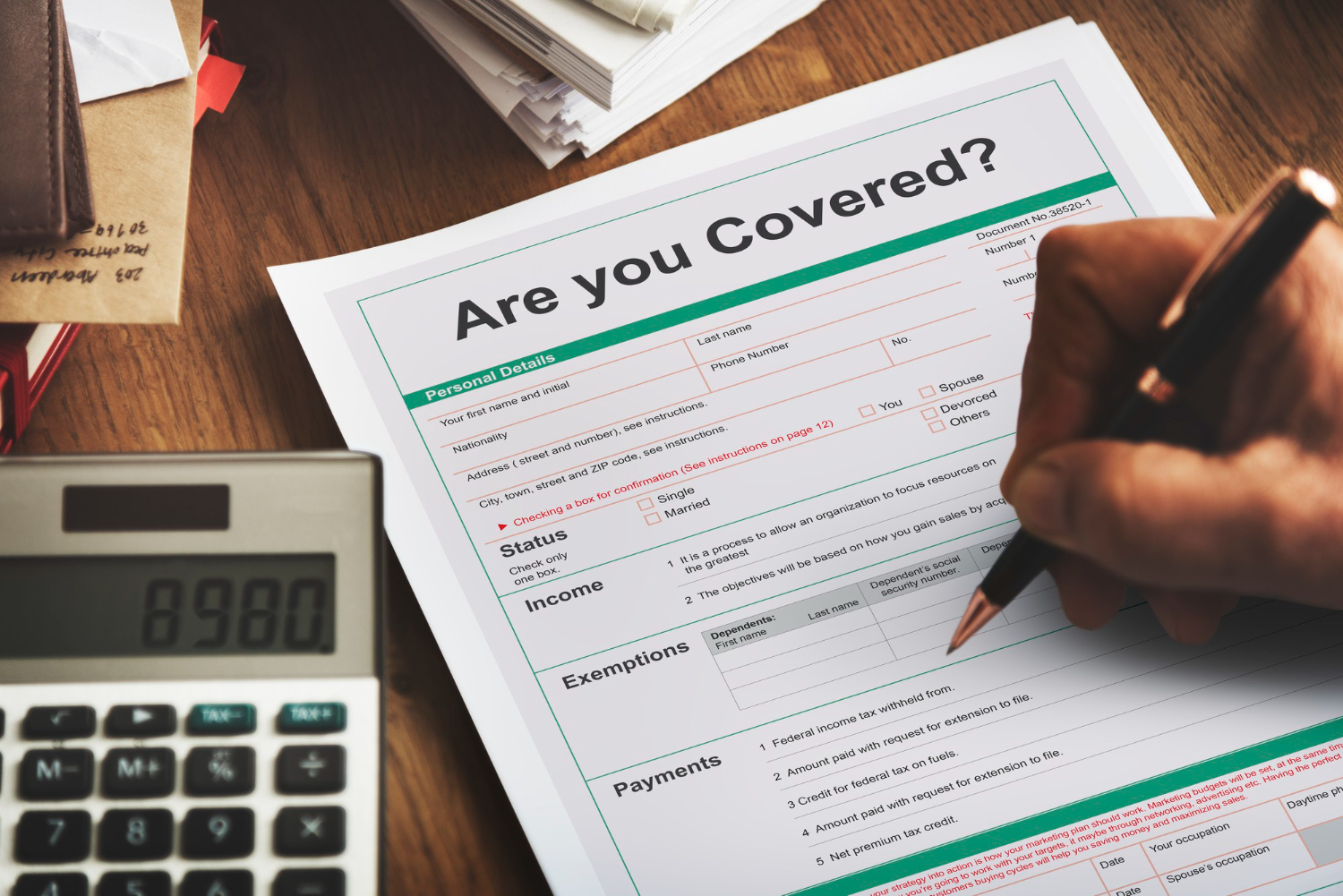Remember when getting an insurance quote meant scheduling appointments with brokers, sitting through hour-long sales pitches, and waiting days for a number that was probably inflated with commission? That world is disappearing fast.
Getting insurance quotes online has become ridiculously easy in South Africa. You can now compare car, home, life, and health insurance quotes from multiple companies in the time it takes to make coffee. No awkward phone calls. No pushy salespeople. Just straightforward information that helps you make informed decisions.
According to 2024 data from the Financial Sector Conduct Authority, 67% of South Africans now get at least one insurance quote online before purchasing—up from just 23% in 2019. The shift is happening because online quotes are faster, more transparent, and often cheaper than traditional broker routes.
The best part? You’re in control. Compare prices, read actual policy terms, and purchase when you’re ready—not when someone pressures you. Let’s walk through exactly how to get quotes online, what information you’ll need, and how to ensure you’re getting accurate comparisons.
Why Online Quotes Save You Money (and Hassle)
No Commission Markup
Traditional insurance brokers earn commission on policies they sell—typically 10-15% of your annual premium for short-term insurance, and often higher for life insurance. That commission gets built into what you pay.
When you get quotes online directly from insurers or through comparison sites that charge insurers (not you), those commission costs often disappear or reduce significantly. You can save R200-500 monthly on car insurance, R150-300 on home insurance, and thousands annually on life insurance.
Instant Price Comparison
Instead of calling five insurers individually and waiting for quotes, you enter your information once and see multiple prices immediately. This transparency forces insurers to compete on price—they know you’re comparing, so they quote more competitively.
Research by Hippo.co.za found that South Africans who compare at least three quotes save an average of 28% compared to those who accept the first quote they receive.
No Pressure Tactics
Online quotes let you think clearly without someone across a desk explaining why you absolutely must buy today. You can review policy documents at your own pace, research the insurer, read reviews, and make decisions when you’re ready.
Accurate Information Access
When getting quotes in person or over the phone, you’re relying on the broker’s explanation of what’s covered. Online, you can download and read actual policy wording before committing. No misunderstandings about what you’re buying.
Faster Process
A comprehensive car insurance quote online takes 5-8 minutes. Life insurance quotes take 3-5 minutes for basic information. Compare that to scheduling meetings, traveling to offices, and sitting through presentations—you’re saving hours.
What You’ll Need Before Getting Quotes
Having information ready speeds up the process and ensures accurate quotes. Here’s what to gather:
For Car Insurance Quotes:
- Your ID number
- Driver’s license details (number, issue date)
- Vehicle registration number
- Exact make, model, and year of your car
- Current mileage (odometer reading)
- Vehicle modifications (sound system, wheels, security)
- Where the car parks overnight (garage, driveway, street)
- Your address (insurers price based on area risk)
- License details of regular drivers (spouse, children)
- Your claims history (last 3-5 years)
- Current insurance details if you’re switching
Why this matters: Insurers calculate risk based on these factors. An incomplete or inaccurate quote will change when they verify details, wasting your time.
For Home Insurance Quotes:
- Property address and type (house, apartment, townhouse)
- Whether you own or rent
- Building value (for owners) or just contents (for renters)
- Contents value estimate
- Security measures (alarm, armed response, burglar bars, security gates)
- Special items needing specific cover (jewelry, art, electronics over certain values)
- Building construction (brick, wood, thatch roof)
- Geyser age (some insurers ask this)
- Claims history on property
Pro tip: Walk through your home with your phone, photographing valuable items. This helps estimate contents value accurately and provides records if you ever claim.
For Life Insurance Quotes:
- Your ID number and date of birth
- Smoking status (be honest—it affects pricing significantly)
- Height and weight (they calculate BMI)
- Occupation and income
- Coverage amount you want
- Policy term (how many years you need cover)
- Basic health history (chronic conditions, medications)
- Dangerous hobbies (skydiving, scuba diving, etc.)
- Family medical history for major conditions
Important: Online quotes for life insurance are estimates until you complete full health disclosure. The final premium might adjust based on medical underwriting.
For Medical Aid Quotes:
- Dependents’ details (spouse, children, parents)
- Current health status of all members
- Chronic conditions requiring ongoing treatment
- Preferred hospital network (if any)
- Whether you want comprehensive cover or hospital-only plans
- Approximate annual medical expenses
Note: Medical aid quotes are complex because plans vary dramatically. Online tools help narrow options, but you might still benefit from expert advice here.
Best Platforms for Getting Online Insurance Quotes
Direct Insurer Websites
Going directly to insurer websites gives you their best direct pricing without middlemen.
Top direct insurers with excellent online quote systems:
Naked Insurance (naked.co.za)
- Car and home insurance only
- Sleek interface, genuinely takes 2-3 minutes
- Instant quotes with clear breakdown of what’s covered
- No phone calls unless you want them
1Life (1life.co.za)
- Life and funeral insurance
- Simple application process
- Instant quotes for straightforward cases
- Excellent for term life insurance
Outsurance (outsurance.co.za)
- Car, home, business insurance
- Detailed online quote system
- Shows fixed excess options clearly
- Can purchase entirely online
King Price (kingprice.co.za)
- Car, home, bike, business insurance
- Shows how your premium decreases monthly
- Quick quote process with premium calculator
- Transparent about what’s included
Discovery (discovery.co.za)
- Life, car, home, health insurance
- More complex due to Vitality integration
- Comprehensive but takes longer (10-15 minutes)
- Worth it if you want rewards-based model
Advantage of direct sites: You’re dealing with one insurer, getting their absolute best direct price, and the quote process is optimized for their specific products.
Disadvantage: You need to visit multiple sites to compare, which takes more time than using comparison platforms.
Comparison Sites (Aggregators)
These platforms let you enter information once and receive quotes from multiple insurers simultaneously.
Hippo.co.za
- Compares car, home, life, business, health insurance
- Partners with 20+ insurers
- Quotes appear within minutes
- No cost to you—insurers pay Hippo
- Advisors available if you want human help
- Covers most major insurers including Old Mutual, Momentum, Hollard, MiWay
Simply (simply.co.za)
- Focuses on affordable insurance for budget-conscious consumers
- Car, home, life, funeral insurance
- Simple interface prioritizing clarity
- Good for straightforward needs
- Partners with budget-friendly insurers
Compare Guru (compareguru.co.za)
- Car, bike, home insurance comparison
- Clean interface, quick quotes
- Partners with multiple insurers
- Shows coverage differences, not just price
- Useful comparison tools highlighting what each policy includes
Hippo, Simply Business Insurance Comparison
- Specifically for business insurance
- Compares professional indemnity, public liability, commercial vehicle, business contents
- Streamlined for business needs
- Partners with commercial insurance specialists
Advantage of comparison sites: Massive time savings—one form, multiple quotes. Easy to compare features and pricing side-by-side.
Disadvantage: Not every insurer participates in comparison platforms. You might miss some options.
Hybrid Approach (Best Strategy)
Use a comparison site to get multiple quotes quickly, then visit 1-2 direct insurer websites (particularly if they’re not on the comparison platform) to see their pricing. This gives comprehensive comparison without excessive effort.
Example: Get quotes through Hippo for Old Mutual, Momentum, MiWay, and Hollard. Then check Naked and Outsurance directly since they’re not on comparison platforms. Total time: 15-20 minutes. Complete picture of your options.
Step-by-Step: Getting a Car Insurance Quote Online
Let’s walk through the process using a typical comparison site:
Step 1: Basic Vehicle Information (1 minute)
Visit the comparison site and enter:
- Vehicle registration number (the system auto-fills make, model, year)
- Or manually enter make, model, year if registration lookup doesn’t work
- Current mileage
- Where the car parks overnight
Step 2: Security and Modifications (1 minute)
Specify:
- Factory-fitted alarm or aftermarket alarm
- Tracking device (brand and model)
- Immobilizer
- Modifications (upgraded sound system, wheels, body kit)
Why this matters: Security features reduce premiums. Modifications can increase them. Accurate disclosure prevents claim rejection later.
Step 3: Driver Information (1-2 minutes)
Provide:
- Your age and ID number
- License type and how long you’ve held it
- Regular additional drivers (spouse, children)
- Their ages and license details
Step 4: Coverage Preferences (1 minute)
Choose:
- Comprehensive cover (full protection) or third-party only (cheapest, covers only damage you cause to others)
- Excess amount you’re comfortable paying (higher excess = lower premium)
- Optional add-ons (hail cover, car hire after accidents, windscreen cover)
Step 5: Contact Details and Claims History (1 minute)
Enter:
- Email and phone number
- Physical address
- Claims in the past 3-5 years (be honest)
- Current insurer if you’re switching
Step 6: Review Quotes (2-3 minutes)
The system shows quotes from multiple insurers. You’ll see:
- Monthly or annual premium
- What’s included in base cover
- Excess amounts
- Optional add-ons and their costs
- Link to full policy wording
Step 7: Compare and Choose (5-10 minutes)
Don’t just pick the cheapest. Compare:
- What’s actually covered (some cheap policies exclude common claims)
- Excess amounts (lower premiums often mean higher excesses)
- Insurer reputation (check reviews quickly)
- Additional benefits (free roadside assistance, car hire, etc.)
Step 8: Purchase (3-5 minutes)
Click through to your chosen insurer. You’ll:
- Confirm all details are accurate
- Upload required documents (ID, license, sometimes vehicle photos)
- Set up payment (debit order, credit card)
- Receive immediate confirmation and policy documents via email
Total time: 15-20 minutes from start to insured. Your car is covered immediately upon payment processing.
Getting Life Insurance Quotes Online
Life insurance quotes follow a slightly different process because medical underwriting affects final pricing.
Initial Online Quote (3-5 minutes):
You provide:
- Age, gender, smoking status
- Height and weight
- Desired coverage amount and term
- Basic health questions (do you have diabetes, heart conditions, cancer history, etc.)
You receive an estimated quote based on this information. For healthy people with no complications, this estimate is usually close to the final premium.
Full Application (10-20 minutes):
If you proceed, you complete a detailed application:
- Comprehensive health history
- Medications you take
- Previous surgeries or hospitalizations
- Family medical history
- Occupation details
- Hazardous hobbies
Medical Underwriting:
For smaller amounts (typically under R1-2 million), insurers often don’t require medical tests if you’re young and healthy. Your application gets approved at the quoted rate.
For larger amounts or if health questions raise concerns, the insurer might require:
- Blood tests (cholesterol, HIV, diabetes markers)
- Urine test
- Blood pressure check
- Sometimes ECG for older applicants
These tests are free—a nurse visits your home or office at a convenient time.
Final Premium:
After underwriting, you receive your final premium. Possible outcomes:
- Standard rate: Your initial quote is confirmed
- Loaded rate: You’re approved but pay 20-50% more due to health factors
- Exclusion rider: Approved but specific conditions aren’t covered
- Declined: Too high risk to insure (rare for straightforward applications)
Most healthy applicants get standard rates within 5-7 days.
Best sites for online life insurance quotes:
- 1Life: Direct insurer, simple process, competitive pricing
- Sanlam Reality: Straightforward term life products
- Hippo: Compares multiple life insurers including Old Mutual, Momentum, Discovery
- Clientèle: Good for funeral and basic life cover
Home Insurance Quotes: What Makes Them Different
Home insurance quotes require accurate valuation—underinsuring means you don’t get fully paid out when claiming.
Buildings Insurance (for homeowners):
You need your property’s rebuild value—how much it would cost to reconstruct your home if it burned down completely. This differs from market value.
A house worth R2 million market value might need R1.5 million to rebuild, or R3 million if it has expensive finishes.
How to estimate rebuild value:
Most online quote systems include calculators. You enter:
- Square meters of the house
- Construction type (brick, wood, thatch)
- Number of bedrooms and bathrooms
- Finishes quality (standard, high-end)
- Special features (swimming pool, lapa, extensive landscaping)
The calculator estimates rebuild costs. Alternatively, check your municipal valuation—it often lists building value separately from land value.
Contents Insurance:
Walk through your home mentally (or physically) and estimate replacement value of everything:
- Furniture (lounge suite, bedroom sets, dining table)
- Appliances (fridge, stove, washing machine, microwave)
- Electronics (TV, sound system, computers, gaming consoles)
- Clothing and shoes (yes, this adds up)
- Kitchen items (pots, dishes, cutlery)
- Linens (bedding, towels)
- Tools and garden equipment
- Sports equipment
- Children’s belongings
Most people underestimate. A modestly furnished three-bedroom house easily contains R300,000-R500,000 in contents. A well-furnished home might have R800,000-R1.2 million.
Online quote process (5-8 minutes):
- Enter property address
- Specify building value (for owners) or skip to contents (for renters)
- Enter contents value
- List valuable items needing special cover (jewelry over R10,000, artwork, cameras, bicycles)
- Security measures (alarm, armed response, burglar bars)
- Claims history on the property
- Receive quotes from multiple insurers
Compare carefully:
- Some policies exclude certain perils (flooding, for example)
- Excess amounts vary significantly
- Some include buildings and contents together; others quote separately
- Check whether portable possessions are covered away from home
How Accurate Are Online Quotes?
Short-term insurance (car, home, bike): Very accurate, usually within 5-10% of final premium. Variations occur if you misreported details or the insurer verifies information differently than you provided.
Life insurance: Initial online quotes are estimates. Final premiums depend on full health disclosure and any required medical tests. Healthy people usually get close to initial quotes; those with health issues may see increases of 20-50%.
Medical aid: Quotes are accurate for premium costs but predicting your actual out-of-pocket medical expenses is complex. The quote tells you what you’ll pay monthly, not necessarily whether that plan suits your specific health needs.
Red Flags When Getting Online Quotes
Requesting Unusual Information
Legitimate insurers need standard information (ID, address, vehicle details, health basics). If a quote system asks for your banking passwords, OTPs, or other sensitive data they shouldn’t need, it’s likely fraudulent.
Quotes Dramatically Lower Than Others
If one quote is 40-50% cheaper than all others for identical cover, something’s wrong. Either:
- Coverage isn’t actually equivalent (check what’s excluded)
- The company is financially unstable
- It’s a scam site impersonating a real insurer
Pressure to Buy Immediately
“This quote expires in 30 minutes!” is a red flag. Real insurers give you time to consider. Some quotes expire after 30 days, which is reasonable. Expiring in minutes or hours is a pressure tactic.
Unclear Terms or Hidden Fees
If the quote doesn’t clearly explain what’s covered, what’s excluded, and what the total cost is (including admin fees and other charges), be suspicious. Transparency is a sign of legitimacy.
No Physical Address or Regulatory Information
Every legitimate South African insurer must be registered with the Financial Sector Conduct Authority (FSCA). Check the site footer for:
- FSCA license number
- Physical address
- Contact details
If these are missing, you might be dealing with fraudsters.
Common Mistakes That Inflate Your Quotes
Over-Insuring
Setting your car’s value at R350,000 when it’s realistically worth R280,000 means you’re paying premiums on R70,000 of unnecessary cover. Insurers pay market value when you claim, not your inflated figure.
Similarly, insuring contents for R800,000 when you actually have R500,000 worth wastes money.
Under-Declaring Security Measures
If your car has a tracking device and alarm, but you don’t mention them, your quote will be higher. Insurers reward security—make sure they know what you have.
Not Bundling When Beneficial
Some insurers discount 10-15% when you insure multiple items with them (car + home, or multiple vehicles). If you’re quoting separately, ask about multi-policy discounts.
Choosing Unnecessarily Low Excess
Lower excess means higher premiums. If you choose R1,000 excess when you could comfortably pay R5,000 if claiming, you’re paying extra every month for years to save R4,000 on a claim you might never make.
Find the excess balance that makes sense—high enough to keep premiums reasonable, low enough that you can afford it if you claim.
Not Mentioning Regular Drivers
If your spouse or child regularly drives your car but you don’t list them, your quote might be inaccurate. Worse, if they have an accident, the insurer might reject the claim for non-disclosure.
List all regular drivers honestly. The premium difference is usually small, but the claim protection is crucial.
How to Lower Your Quote Without Reducing Cover
Improve Security
Adding a tracking device to your car can reduce premiums by 10-20%. Installing an alarm system in your home might save 15-25%. The upfront cost of security often pays for itself within 1-2 years through premium savings.
Increase Your Excess
Raising excess from R2,500 to R5,000 might reduce your monthly premium by R80-120. Over a year, that’s R960-1,440 saved. If you don’t claim, you’ve saved money. Even if you do claim, you might come out ahead depending on how many claim-free years you’ve had.
Pay Annually Instead of Monthly
Many insurers charge 5-10% less if you pay the full annual premium upfront rather than monthly installments. If you can afford it, annual payment saves money.
Accept Telematics Monitoring
Apps that track your driving (or home security behavior) reward safe practices with discounts. Discovery’s DQ Track, Outsurance’s O-Sure Score, and similar programs can reduce premiums by 15-30% for responsible behavior.
Remove Unnecessary Add-Ons
Do you really need car hire after an accident if you have a second vehicle? Do you need extended windscreen cover if your excess already covers it? Strip out add-ons you won’t use.
Shop Around Annually
Loyalty doesn’t always pay in insurance. Get new quotes every year when renewal comes up. If you find better pricing, you can switch or use the competing quote to negotiate with your current insurer.
Join Professional or Alumni Groups
Some professional associations, university alumni groups, or membership organizations negotiate group insurance rates for members. These can be 10-20% below individual rates.
What Happens After You Get Your Quote
Quote Validity Period
Most online quotes are valid for 30 days. The price is guaranteed during this period—market changes or your birthday passing won’t increase it.
After 30 days, you’ll need to requote. Prices might change based on your new age or market adjustments.
You’re Not Obligated
Getting a quote creates zero obligation. Use quotes to:
- Compare your current insurance and see if you’re overpaying
- Understand market pricing before your policy renews
- Educate yourself about what different insurers offer
- Negotiate better rates with your current insurer
Comparing Quotes to Current Cover
If you’re currently insured, compare new quotes carefully to your existing policy:
- Is the coverage equivalent or are there differences?
- Does the new insurer have similar or better claim reputation?
- What’s the switching process, and is there a notice period with your current insurer?
- Are there loyalty benefits you’re giving up?
Making the Switch
If you decide to switch insurers:
- Purchase new policy first: Get it active before canceling the old one
- Check notice periods: Some insurers require 30-31 days’ notice to cancel
- Cancel old policy in writing: Email or letter confirming cancellation date
- Request refund if applicable: If you’ve paid ahead, you should receive a pro-rata refund
- Confirm no gaps: Ensure not even one day passes without coverage
The Best Time to Get Insurance Quotes
Before Your Current Policy Renews
Start getting quotes 30-45 days before your renewal date. This gives you time to compare properly, read policy documents, and make an informed decision without rushing.
If you wait until renewal day, you might renew automatically at an inflated price because you don’t have time to find alternatives.
After Major Life Changes
Certain events change your insurance needs or pricing:
- Marriage: Combining policies often saves money, and married people sometimes get better rates
- New vehicle: Obviously you need new quotes, but this is also a good time to review all insurance
- Moving house: Different areas have different risk profiles affecting pricing
- Turning 25, 30, or 40: Age milestones affect life insurance pricing significantly
- Paying off your car: Once you own the vehicle outright, you can consider third-party-only insurance instead of comprehensive
- Having children: Your life insurance needs increase dramatically
When Prices Drop (Rarely, But It Happens)
Occasionally, insurers launch promotional campaigns or reduce prices to gain market share. If you see advertising about reduced premiums, get a quote even if your renewal isn’t near—you can sometimes switch mid-term and save money.
After Improving Security
If you’ve installed a tracker, alarm, or other security, get new quotes immediately. The premium reduction often justifies switching even mid-policy.
Dealing With Follow-Up Calls After Getting Quotes
Expect Contact
When you submit information through comparison sites, participating insurers get your details. You’ll receive follow-up calls or emails from them—it’s normal and expected.
Managing Communication:
If you want to be left alone to decide:
- Use email-only communication options when available
- Politely tell callers you’re still comparing and will contact them if interested
- Ask to be put on their “do not call” list if you’ve eliminated them from consideration
If you want assistance:
- These follow-up calls can be helpful for clarifying coverage, asking questions, or negotiating better pricing
- Sales agents sometimes have authority to discount quotes slightly to win your business
Avoid Giving Banking Details Over the Phone
If you decide to purchase, do it through the insurer’s secure website or app. Don’t give banking details, OTPs, or passwords over the phone, even if the caller claims to be from the insurer. Scammers impersonate insurers to steal banking information.
Making Sense of Quote Comparisons
When you have multiple quotes, create a simple comparison:
Example Car Insurance Comparison:
| Feature | Insurer A | Insurer B | Insurer C |
| Monthly Premium | R685 | R720 | R650 |
| Excess | R4,500 | R3,500 | R6,000 |
| Roadside Assistance | Included | Extra R45/month | Included |
| Car Hire After Accident | 3 days included | 5 days included | Not included |
| Claim Reputation | 94% approval | 92% approval | 88% approval |
| Windscreen Cover | Up to R5,000 | Full cover | Up to R3,000 |
In this example, Insurer C is cheapest but has highest excess, no car hire, lowest claim approval, and limited windscreen cover. Insurer B costs R35 more monthly but provides better overall value.
Price matters, but it’s not everything. The point of insurance is protection when you need it—choosing the cheapest option with poor claims service defeats the purpose.
The Truth About Online vs. Broker Quotes
Online Direct is Usually Cheaper
By eliminating broker commission, direct online quotes are typically 10-25% less expensive for equivalent cover. For straightforward insurance needs, online is the smart choice.
Brokers Add Value in Complex Situations
If you have complicated insurance needs—multiple properties, business insurance, unusual risk factors, or health conditions affecting life insurance—a good broker provides valuable expertise.
They know which insurers handle specific situations well, can negotiate on your behalf, and save you enormous time researching complex products.
The commission they earn might be worth it if they’re genuinely helping rather than just processing a simple transaction you could easily do yourself.
Hybrid Approach
Get online quotes first to understand market pricing and options. If your situation is complex, consult a broker with your research in hand. You’ll have informed conversations and can assess whether their recommendations are genuinely better or just higher-commission products.
Final Thoughts: Take Control of Your Insurance
Getting insurance quotes online puts you in control. You see real pricing from multiple companies, compare coverage transparently, and make decisions at your own pace without pressure.
The two minutes promised in the headline is realistic for initial quotes. Getting truly comprehensive information and making a fully informed decision takes 15-30 minutes—still remarkably quick compared to traditional processes.
Don’t assume your current insurance is the best deal. The market is competitive, and new insurers launch regularly with better pricing or features. Checking quotes annually is smart financial management, like comparing electricity rates or cell phone contracts.
Use comparison sites to get multiple quotes quickly, then dig deeper into 1-2 finalists by visiting their websites directly, reading policy documents, and checking recent customer reviews. This combination of breadth and depth gives you the complete picture.
Start now. Open a comparison site, spend five minutes getting quotes, and see what you could save. At minimum, you’ll confirm you’re getting good value. More likely, you’ll discover you can save hundreds or thousands of rand annually for the same or better coverage.
Your insurance should protect you, not drain your wallet unnecessarily. Online quotes help ensure you’re paying fair prices for solid protection. Two minutes of your time could save you R3,000-R5,000 this year. That’s worth clicking a few buttons.






